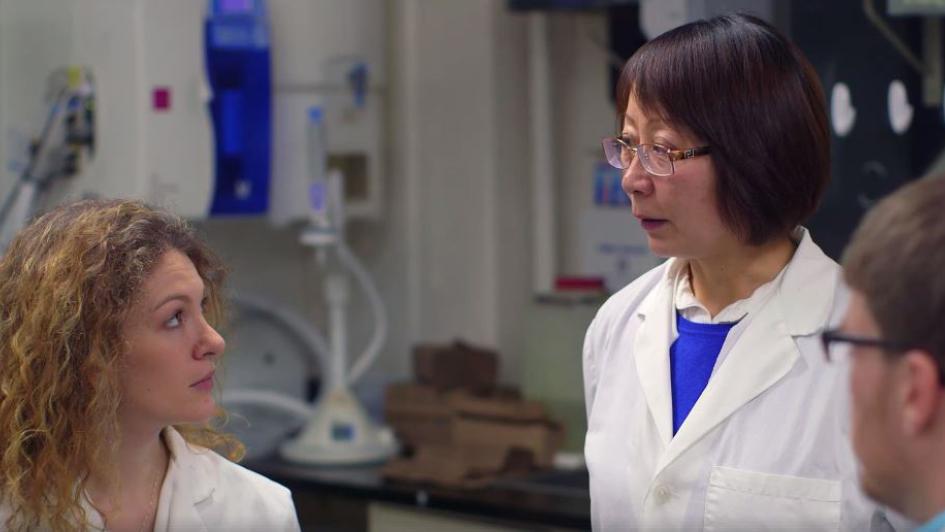Prostate Cancer Research at Bastyr University

Published
What if scientists could develop an alternative therapeutic plan for prostate cancer prevention and treatment using botanical medicine?
What if these particular treatments and preventative measures were powerful alternatives to pharmaceuticals?
Dr. Jing Meng and her colleagues at Bastyr are conducting research to turn “what if” into “we can.” They have begun the process of identifying plant extracts that may promote apoptosis (or cell death) of prostate cancer cells. In their laboratory study, they treated prostate cancer cells (LNCaP cells) with Serenoa repens, more commonly known as saw palmetto, and two Chinese herbs (Panax notoginseng and Isatis indigotica). The herbs used in this study were validated by Dr. Kaleb Lund, a member of the faculty in the Botanical Medicine program, using High-Performance Liquid Chromatography (HPLC).
The team observed that all three herbs decreased the viability of the cancer cells as measured by assessing essential cell metabolic enzymes. The team also demonstrated increased apoptosis in herb-treated cells by measuring an apoptosis marker using flow cytometry, in which groups of cells are run passed laser light and the fluorescent light emitted by the cells quantified . The exact botanical mechanisms of action remain to be discovered.
Sydney Freggiaro, a second-year student in the ND program and a student researcher working alongside Dr. Meng, explained, “Apoptosis is just one way cells die, but it is the preferred way since it will not induce inflammation and local tissue destruction.”
Student researcher Benjamin Hawthorne, who is graduating in June from the ND program, stated, “It is exciting to discover that there is a clear decrease in cell growth as well as indications that they are undergoing apoptosis based on our analysis after herb treatment.”
Benjamin recently presented a poster titled “Apoptosis Inducing Herbs for Prostate Cancer Prevention and Treatment” at the Integrative Health & Medicine Conference.
Dr Meng conducted previous studies at the University of Washington and Fred Hutchinson Cancer Research Center as a postdoctorial fellow that suggested that reduction of androgen signaling compromises the integrity of the barriers fencing tissue cells from blood, which leads to autoimmune inflammation, and over time it may lead to cancer. She said, “We are particularly interested in identifying natural products which have both anti-cancer and anti-inflammation activities. To identify the active constituents and to characterize the mechanisms of actions of these botanicals will be our future research direction. We hope our studies could open the door for an alternative therapeutic plan for prostate cancer treatment and prevention.“
For more information on other research studies happening at Bastyr visit us at bastyr.edu/research/research-institute.

